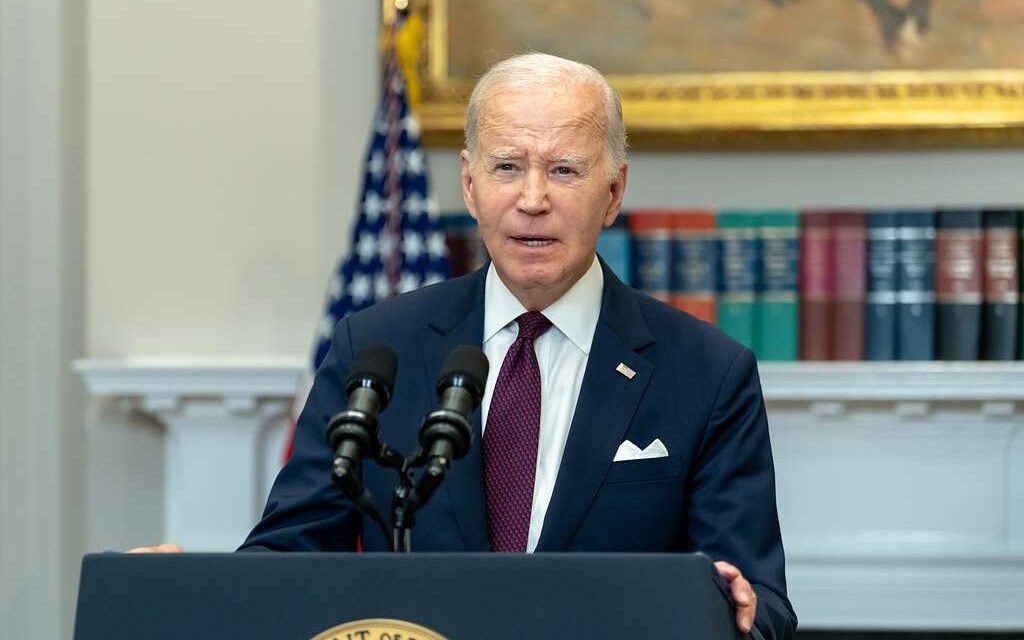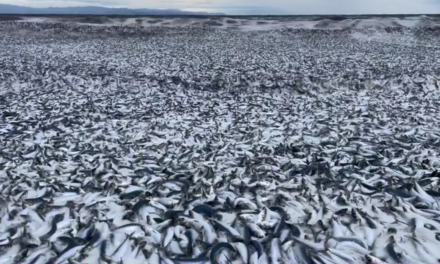President Biden announced on Friday a temporary pause on approvals for pending and future applications to export liquefied natural gas (LNG) from new projects. The decision, which could potentially delay decisions on new plants until after the November 5 election, aims to conduct a thorough review of the economic and environmental impacts of projects seeking approval to export LNG to Europe and Asia.
The Department of Energy (DOE) will oversee the review, which will assess the implications of LNG exports on energy costs, America’s energy security, and the environment. Energy Secretary Jennifer Granholm mentioned in a teleconference with reporters that the review will take several months and will later be open to public comment, further extending the timeline.
President Biden emphasized the need to scrutinize the impacts of LNG exports during this period, stating, “During this period, we will take a hard look at the impacts of LNG exports on energy costs, America’s energy security, and our environment.” The pause, according to Biden, recognizes the climate crisis as an existential threat.
Administration officials assured that the temporary pause would not negatively affect allies, as it includes an exemption for national security, allowing the U.S. to provide LNG in case of emergencies. However, companies and countries in Europe, heavily reliant on U.S. LNG supplies, expressed concerns about potential disruptions in their energy security.
The move has drawn both support and criticism from various quarters. Environmentalists and youth groups, part of Biden’s base, welcomed the decision, while critics, including former President Donald Trump’s campaign spokesperson Karoline Leavitt, labeled it as a “disastrous self-inflicted wound” that undermines America’s economic and national security.
The last review of LNG export projects took place in 2018 when export capacity was 4 billion cubic feet per day (bcfd). Since then, the capacity has tripled and is expected to increase significantly by 2030 with ongoing projects. Environmentalists argue that new LNG projects can have adverse effects on local communities, contribute to global reliance on fossil fuels, and result in emissions from burning gas and methane leaks.
While swaths of U.S. industry, including chemicals, steel, food, and agriculture, oppose unrestricted gas exports due to concerns about fuel prices and reliability, the pause will affect only four projects with export approvals pending at the DOE, according to an administration official.
The decision is expected to impact projects by companies such as Sempra Infrastructure, Commonwealth LNG, and Energy Transfer. Sempra expressed confidence that its projects would help replace more carbon-intense fossil fuels, including coal, and provide gas to allies. However, some companies did not immediately respond to requests for comment.
Climate activists, upset with Biden’s approvals of oil and gas projects in Alaska last year, have focused their efforts on stopping Venture Global’s Calcasieu Pass 2 (CP2) pending LNG project in Louisiana. The pause applies to all current and future pending applications until the review is complete, potentially affecting projects like CP2 if approved by the Federal Energy Regulatory Commission (FERC) and later considered by the DOE.
A spokesperson for Venture Global warned that a pause could send a “devastating signal to our allies that they can no longer rely on the United States,” with Germany accounting for nearly half of CP2’s contracted LNG capacity. The FERC is expected to consider CP2 as soon as February, adding another layer of complexity to the ongoing debate over the nation’s LNG export policies.

Nature has always been my thing since I was a kid. I grew up surrounded by it, and it made me care deeply about keeping it safe. After studying Environmental Science and Journalism, I set out to uncover the big stories about what’s happening to our environment.










